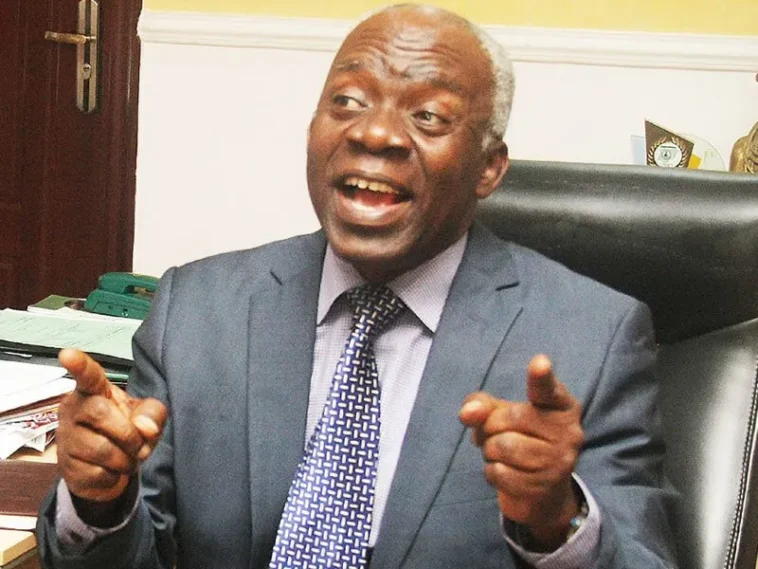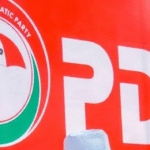Renowned human rights lawyer and Senior Advocate of Nigeria (SAN), Femi Falana, on Sunday, appealed to the President Bola Tinubu-led administration to take active steps in tackling the growing poverty in Nigeria.
This was as he called for the total utilisation of federal resources and social welfare initiatives.
Sunday Telegraph recalls that President Tinubu, during a statement directed to the Governors of the All Progressive Party (APC), urged them to ‘deepen their roots’ and ‘wet the grass more’ in order to aid the advancement of the nation.
“Nigerians are still complaining at the grassroots. To you, the governors, you must water the grass more and deliver progressive change to Nigerians. May God bless our democracy and grant us more fertile lands”.
Speaking on the development, Falana maintained that the Federal Government bears the primary responsibility for initiating tangible welfare measures.
He argued that instead of allocating vast public funds to administrative or infrastructural extravagance, both federal and state governments should focus on implementing meaningful social protection programs for the poor.
Falana also condemned the imbalance in federal allocations, noting that the ₦32.7 billion set aside for the National Social Investment Programme in the 2025 budget was less than the amount spent on a single recent project.
“Instead of begging state governments to ‘wet ground more’, President Bola Tinubu is urged to ensure that the National Social Investment Programme Agency Act is adopted and enacted into law by the 36 state governments,” he said.
“A government that recently claimed to have spent the sum of ₦39 billion for the renovation of the International Conference Centre at Abuja at the Federal Capital Territory cannot justify the allocation of ₦32.7 billion to fund the National Social Investment Programmes for 2025 to support the 133 million people that are said to be multi-dimensionally poor in the country,”
Falana maintained that the country has enough resources to fund meaningful social programmes—what’s lacking is the political will. Citing FAAC figures, he noted that over ₦11.19 trillion was shared among all levels of government in the last year alone.
He also referenced findings from BudgIT, which flagged more than 11,000 dubious projects in the 2025 budget amounting to ₦6.93 trillion—allegedly inserted by the National Assembly.
Highlighting this, Falana said the widespread insertion of questionable projects reflects a troubling misalignment in national spending priorities, particularly when lawmakers continue to receive hefty compensation.
He queried how: “₦21 million is paid monthly to each senator and ₦15 million to each member of the House of Representatives,” yet basic social interventions remain neglected.
Falana then called on the Federal Executive Council to apply the same level of urgency and commitment shown to infrastructure towards improving the nation’s welfare systems.
“Therefore, the Federal Executive Council should, as a matter of urgency, approve not less than ₦5 trillion to fund the National Social Investment Programme,” he said.
To promote transparency and effectiveness, Falana urged that the fund’s management should not be left solely to government officials. He recommended the inclusion of labour union representatives and credible civil society organisations in the oversight process.
“The management of the fund should not be left solely in the hands of government officials, but should involve elected representatives of trade unions and credible civil society organisations to ensure transparency and effectiveness,” he advised.





